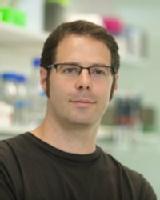WMS Events Calendar
Please see this page for MB ChB events.
BMS Internal Seminar: Short talk - BSc Health and Medical Sciences (HMS) Course by the Health and Medical Sciences (HMS) team and Seminar by Dr John James, Division of Biomedical Sciences
 Update on BSc Health and Medical Sciences (HMS) Course
Update on BSc Health and Medical Sciences (HMS) Course
The BSc Health and Medical Sciences course will launch in 2020 at Warwick Medical School with an aim to develop graduates that can work across discipline boundaries in an integrated approach to managing problems in health. Alongside health science perspectives, students will explore the cellular basis of a broad range of health conditions and diseases.
Six integrated modules in the first two years of the course will span multiple biomedical and health science topics. An overview of biomedical topics includes: 1) introduction to genetics and epigenetics, 2) structure of a cell, 3) mechanisms that enable cell duplication, movement and repair, 4) molecular basis of cancer, cardiovascular and neurological diseases, 5) interactions between circadian rhythm, drug metabolism and treatment efficacy, 6) metabolism and nutrition including investigating the molecular mechanism of diabetes and obesity, 7) reproductive health, 8) molecular basis of age-associated conditions, 9) immune system in health and disease. Learning will be supported by lectures, small-group teaching, case-based learning, online learning, and undertaking a research project.
This seminar will provide an opportunity to discuss how the content of the course maps to the areas of research in BMS and to highlight the opportunities available for BMS staff to contribute to the delivery of the course.
 Investigating T cell signalling using reconstitution and optical control
Investigating T cell signalling using reconstitution and optical control
Our immune system helps us stay healthy even though we are constantly exposed to harmful bacteria and viruses. This system is a network of white blood cells and proteins that constantly surveys our body and, on encountering signs of attack, will start to eliminate the infection. This decision to act must be made with care; a weak response may lead to uncontrolled disease, but over-activity could cause an unwanted response to our own cells, as in auto-immune diseases like arthritis or multiple sclerosis.
My research focuses on how T cells, a white blood cell type, make these decisions to initiate an immune response. Signalling network in general are very complex, making it difficult to understand how the dynamics of intracellular signalling control cell fate. To address this, we use two complementary methods: we design light-controlled inputs to T cells that give precise control in space and time over signalling and we use reconstitution approaches in non-immune cells to identify the salient features required for receptor signalling. I will present two new vignettes based on these approaches. Our goal is to find parts of the decision-making network that could be ‘tuned’ by new drugs to improve our immune system when T-cell function becomes incapable of maintaining our health.
